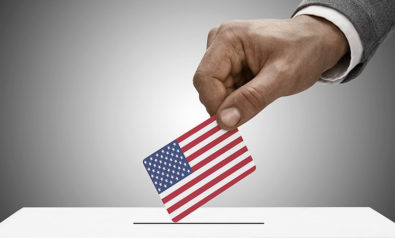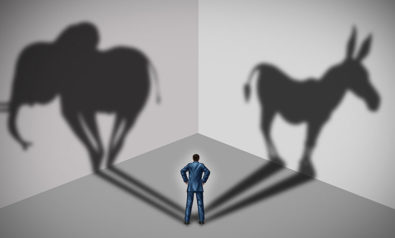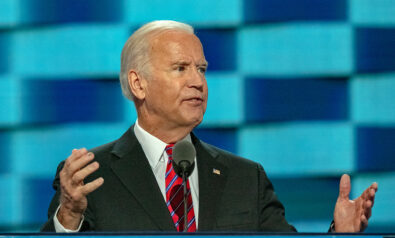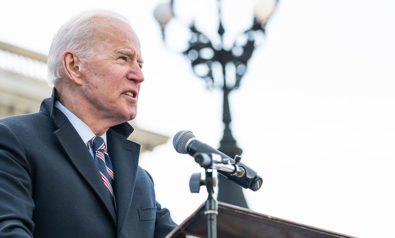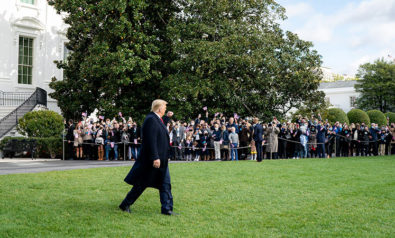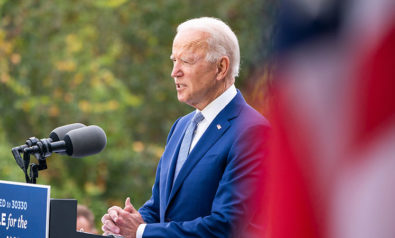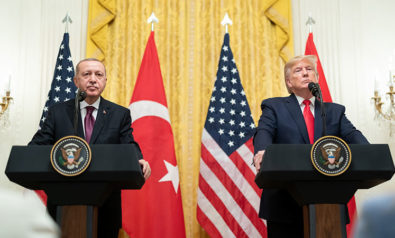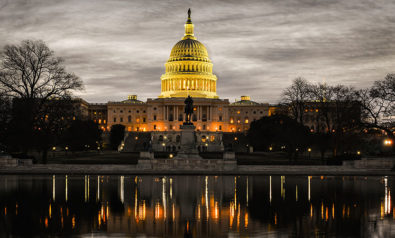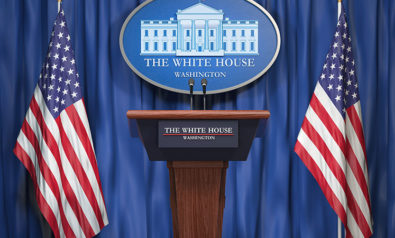Another American election has come and gone. And, once again, enlightened pundits on both sides of the Atlantic are scratching their heads. How is it possible that some 70 million American voters would cast their vote for a boorish, incompetent, lying buffoon, a misogynist racist hypocrite, devoid of the most basic human emotions such as empathy and compassion? How is it possible that a president who not only has demonstrated a fundamental lack of concern for the safety and well-being of even his own entourage but even ridiculed those who do would be considered worthy of a second term in office? Yet millions of voters across the United States did, and are proud of it.
360˚ Context: The 2020 US Election Explained
What is surprising is not the outcome of this election, but the surprise of those surprised by it. After all, over the past four years, dozens of books, articles, papers and blog posts have been written purporting to explain why Trump won in 2016 and why he continued to hold on to his constituency, despite everything. Yet four years later, few seem to have taken the findings to heart.
Simple Explanations
Unfortunately enough, in today’s world, simple explanations no longer suffice to get to the heart of things. Social scientists like simple, monocausal explanations. Rational choice theories maintain that what counts for voters is their pocketbook. As a famous adage has it, It’s the economy, stupid. Yet as Thomas Frank, in his well-known book “What’s the Matter with Kansas,” maintained in 2004, over the past few decades, among ordinary people, cultural issues have increasingly outweighed economics as a matter of public concern. To be sure, Frank’s conclusions encountered considerable opposition, but recent developments appear to substantiate his interpretation.
Take the story of West Virginia’s coal mining community. In 2016, Trump promised to resurrect coal, that “clean beautiful coal” that had guaranteed well-paying jobs in one of America’s most depressed regions, the Appalachians. But after four years in office, Trump had done nothing to halt the closing of coal mines. And yet, coal mining communities continued to support Trump. Why? Partly because of his “America First” slogan, but also because of his anti-abortion stance and, last but not least, because he appeared to be the “only one standing in the way of the entire industry closing down.”
Nationalist pride mixed with cultural concerns and economic wishful thinking — this is the ideational brew that has appealed to substantial parts of the American electorate and, apparently, continues to do so. Voters in the state of Michigan are a case in point. Michigan was once the hub of America’s automotive industry, providing well-paying jobs to thousands of American workers. Detroit’s well-deserved moniker was Motor City. For a while, Detroit was also known for a new sound in music, Motown. Motown moved, the automotive industry collapsed, people fled the city. In 1950, Detroit boasted a population of 1.8 million, the fifth-largest city in the United States. By 2019, its population had declined to a bit more than 670,000, the city a shadow of its former self. In 2016, Trump promised that the automotive industry would come back to Michigan. It didn’t. Trump 2020 claimed otherwise: “We brought you a lot of car plants, Michigan! We brought you a lot of car plants. You know that, right?” His enthusiastic supporters knew it. Why? Because Trump told them so.
No matter that reality was the opposite. In fact, not only since the “coming of Trump” had not one auto plant been built in Michigan, but, as Mark Danner writes in The New York Review of Books, “since his ascension not less than three thousand Michiganders had lost jobs in the vital auto sector.” Apparently, the power of make-belief trumps anything, even facts. But then, facts are nothing but the machinations of the lamestream media, out there to discredit the wonderful work of the Great Leader.
Reality No Longer Counts
If reality no longer counts in politics, what is left? It has been suggested that contemporary American politics is “close to a religion.” Religions tend to have a Manichean bent, centered upon a fundamental struggle between the forces of good and of evil, between light and darkness, God and Satan. Ironically enough, the notion of political religion entered the social sciences in the context of totalitarianism — fascism, Nazism and Stalinism. This obviously is not intended to conflate Trump with any of these regimes. Trump, as I have stated before, is a populist, and populism must not be mixed up with totalitarianism.
Modern populism, as exemplified in its crudest form by Donald Trump, follows the logic introduced by the German political theorist Carl Schmitt. Central to Schmitt’s thinking is the notion that politics is above all grounded in the distinction between friend and enemy. A number of recent surveys suggest that this antagonism, popularly known as polarization, has become central to understanding contemporary American politics. Donald Trump has been a master in evoking and fueling a range of emotions, from disgust to resentment, from anxiety to rage, that have contributed to and have exacerbated existing political animosities, widening, in the process, the existing partisan divide.
Surveys reveal that the Schmittian spirit has deeply penetrated American society and the electorate. In December last year, for instance, in a comprehensive Pew study on partisanship, 55% of Republicans said that Democrats, and 47% percent of Democrats said that Republicans, were “more immoral” when compared with other Americans. Anecdotal evidence suggests that this spirit, with its quasi-religious overtones, has even reached into American families.
Held Together With String, Can America Hold?
A recent article in The Jesuit Review recounts the story of a Catholic Trump supporter whose four children, all of them working in science-related fields, “hate Donald Trump” and think “he is evil.” The father obviously disagrees, reflected, for instance, in his refusal to wear a protective mask when in public. In response, one of his sons told him that if he should ever have children, he would not want his father around since he was a “bad influence.” That, the father is quoted as saying, “just broke my heart.”
A recent New York Times article tells the story of a twin who no longer feels close to her brother because of his views on Trump, with which she does not merely disagree but which she finds “unfathomable.” Any attempt to discuss the divide separating the two siblings end in anger and mutual acrimony, putting a severe strain on their relationship.
Over the past years, there has been a number of accounts of Americans canceling participation in family Thanksgiving and Christmas gatherings in order to avoid having to deal with relatives from the other side of the political chasm. A New York Times article from late 2016, “Political Divide Splits Relationships — and Thanksgiving, Too,” recounts the particularly poignant case of a software designer who decided “to move her wedding so that her fiancé’s grandmother and aunt, strong Trump supporters from Florida, could not attend.”
Two Visions
To be sure, anecdotal evidence is what it is, anecdotal evidence. But in conjunction with representative surveys, it provides further support for the deep chasm that divides contemporary American society. The motto of the American seal is E pluribus unum — Out of many, one. The past few years have clearly shown — and the result of the recent election has reconfirmed it — that the motto should be modified, at least for the time being, from E pluribus unum to E pluribus duum. What we are seeing today even more so than four years ago is a territorial entity with a population not only living in two diametrically opposed realities, but with two diametrically opposed views on reality.
In the European literature on radical right-wing populism, one of the more prominent interpretative frames of analysis is the notion of two visions informing electoral support for or against the radical populist right — visions of either an open or of a closed society. In today’s world, a better characterization of these radically divergent visions might be cosmopolitanism versus parochialism. Sociologically, cosmopolitan dispositions are particularly prevalent in metropolitan areas and global cities, parochial dispositions in rural, small-town areas. A cursory glance at the American electoral map provides an almost perfect illustration of these dynamics. Anecdotal evidence fills in the details.
Take, for instance, a recent New York Times exposé on farmers in Nebraska, most of them ardent Trump supporters. They were thrilled when Trump claimed in 2016 that he would stick up for the “forgotten men and women of our country,” who, he promised would “be forgotten no longer.” Four years later, Trump supporters in “places like rural Nebraska say they feel remembered. To them, these four years have brought a sense of belonging in a country led by someone who sticks up for, and understands, their most cherished beliefs.”
This sense of regained dignity and respect, and a renewed sense of belonging among large parts of what has come to be known as flyover country — the vast landmass between the two coasts, home to all those Americans who in recent decades have increasingly felt not only ignored but like “strangers in their own land” — explains to a large extent why they have continued to stick with Trump. The fact that he has largely failed to deliver? Not important. But Trump’s tariff war with China hurt Midwestern farmers in particular, forcing the Trump administration to come up with a multi-billion rescue package — at the expense of the American taxpayer.
Religion is based on faith, not facts. You have to believe that God created the world some 10,000 years ago, even if science tells you that 250 million years ago, a cataclysmic event wiped out much of life on this planet. You have to believe that global warming is nothing but a hoax, another one of these liberal ploys to prevent you from pursuing the American dream. This year, roughly two-thirds of Democrats thought that climate change was an important issue; among Republicans, less than 15%.
Political religion is a zero sum game. There is no compromise between those who believe that life starts with conception and those who think that women should have a choice on whether or not to bring their pregnancy to full term. There is no middle ground between those for whom Black Lives Matter is a fundamental civil rights issue and those for whom it is nothing but an excuse for large-scale violence. There is nothing that those who believe women are at a systematic disadvantage and those who believe that the most discriminated person in today’s world is the white male.
No matter the ultimate outcome of this election, it is not going to change the fundamental political crisis that way precedes the advent of Donald Trump. As has often been noted, Trump is not its cause but its expression. As I have written before, Trump is nothing but an empty signifier, which allows all those who have been disenchanted with the trajectory of American history and politics over the past decades to project their disenchantment and rage, their frustrations and ressentiment, their disgust and fears onto one man.
The ultimate outcome of this election is going to change nothing with regard to the deep-seated problems that have sundered apart the fabric of what once was, for all of its faults and blemishes, a dynamic democracy. In a recent poll, a two-thirds majority of respondents said they feared that democracy in the United States was in grave peril. Regardless of who is ultimately going to lead America come next year, it will take considerably more than mere rhetoric to restore confidence in the workings of what, after all, is one of the world’s most established democracies.
*[Fair Observer is a media partner of the Centre for Analysis of the Radical Right.]
The views expressed in this article are the author’s own and do not necessarily reflect Fair Observer’s editorial policy.
Support Fair Observer
We rely on your support for our independence, diversity and quality.
For more than 10 years, Fair Observer has been free, fair and independent. No billionaire owns us, no advertisers control us. We are a reader-supported nonprofit. Unlike many other publications, we keep our content free for readers regardless of where they live or whether they can afford to pay. We have no paywalls and no ads.
In the post-truth era of fake news, echo chambers and filter bubbles, we publish a plurality of perspectives from around the world. Anyone can publish with us, but everyone goes through a rigorous editorial process. So, you get fact-checked, well-reasoned content instead of noise.
We publish 2,500+ voices from 90+ countries. We also conduct education and training programs
on subjects ranging from digital media and journalism to writing and critical thinking. This
doesn’t come cheap. Servers, editors, trainers and web developers cost
money.
Please consider supporting us on a regular basis as a recurring donor or a
sustaining member.
Will you support FO’s journalism?
We rely on your support for our independence, diversity and quality.



